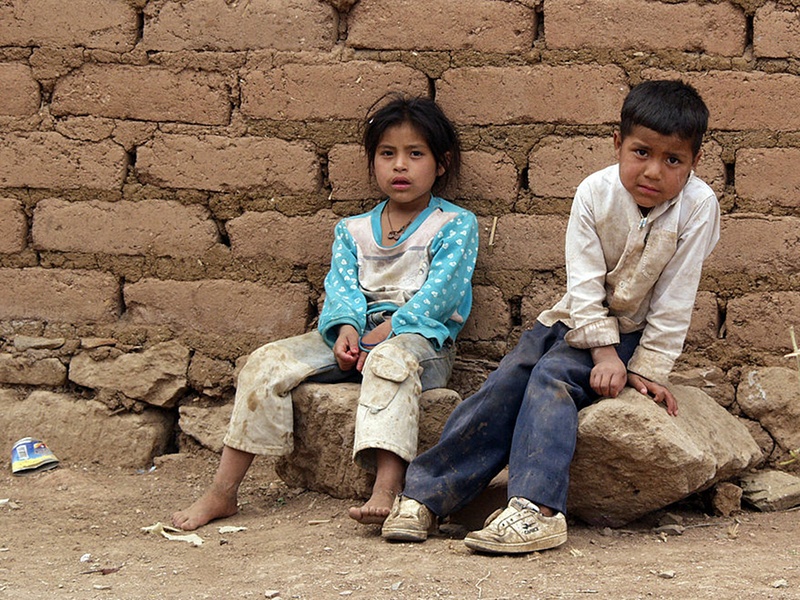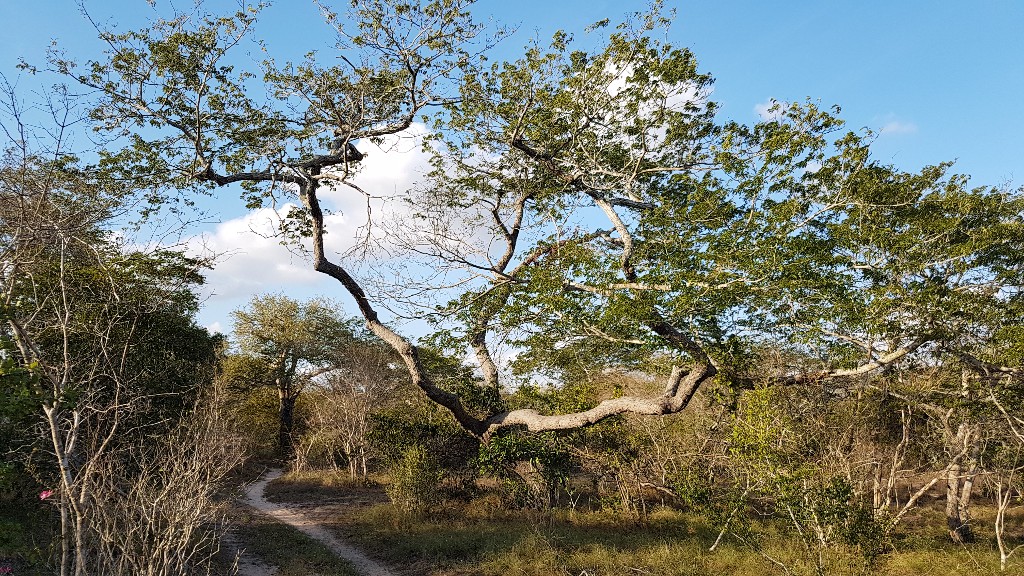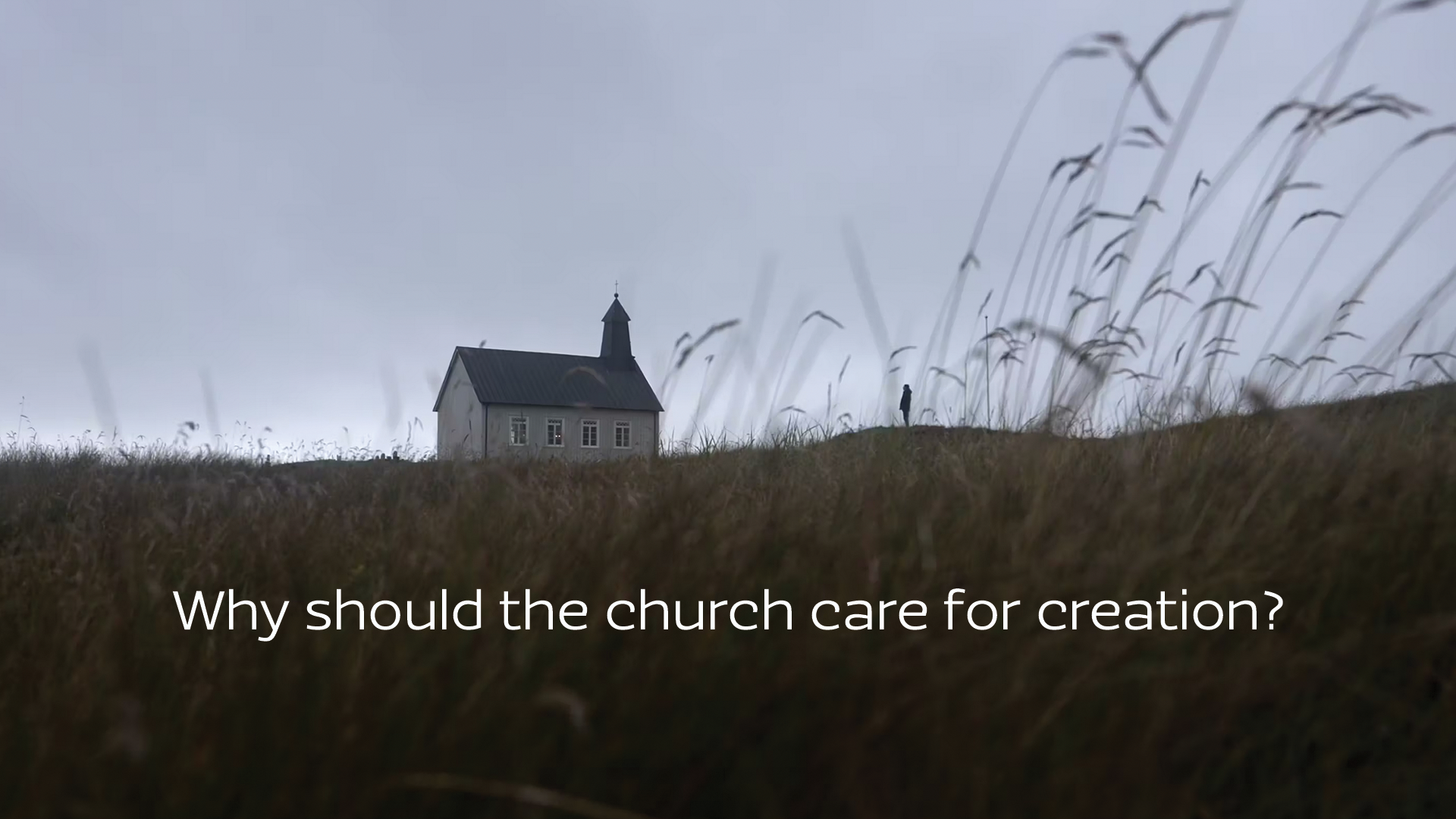The poor or the planet: which comes first?
Forty years ago there was a huge debate amongst evangelical Christians. Is the gospel simply about ‘spiritual’ matters or does it include care for the poor and oppressed? That debate was won by the power of scripture. Both the Old Testament prophets and Jesus unite in saying that we cannot love God without loving and serving our neighbour in need.
Today there’s renewed debate. Is the Gospel – God’s good news – only for people, or is it good news for all creation? Take a practical example: if a rare species of frog is threatened by a poor community chopping trees for firewood, should Christians support the wildlife or the humans? Put so starkly, most Christians would say ‘people come first’. After all, didn’t Jesus say we are ‘worth more than many sparrows’? [*] Didn’t he make us uniquely in his image and give us ‘dominion’ over other creatures? Anyway, isn’t going green just a luxury for the rich?
It’s not that simple! Human ‘dominion’ is not power to do as we like, but responsibility to be ‘servant Kings’ within the community of creation. As for the rich, the real luxury is not going green but surely the opposite – over-consuming resources at terrible cost to both poor and planet, and forgetting our utter dependence on God’s provision in nature!
And sparrows? God’s care for the humble Passer domesticus should not be underestimated. Whilst Jesus clearly says individual humans are of greater significance than individual sparrows, he’s also showing that each individual of every species is valuable to God in itself. Not a single sparrow falls (or is caught) ‘without your Father’ – emphasising God’s protection and oversight of even the smallest and cheapest creature.
Elsewhere, the bible repeatedly affirms that non-human creatures matter to God. Noah’s ark shows God’s passion for biodiversity conservation – preserving species ‘so that their kind might continue upon the earth’, irrespective of their usefulness to us. Jesus may not give out proof texts about creation care but it’s woven through his parables, teaching and lifestyle (as I hope to look at in a future post).
Psalm 36:6 sums it up: ‘You save humans and animals alike, O Lord’. The choice of ‘poor or planet’ is false and dangerous. God created both, God cares for both, God saves both, and God calls us to work for the flourishing of both people and wildlife. If we stop caring for the planet it’s the poor who suffer first and worst. If we stop caring for the poor they have no choice but to live less sustainably. The biblical vision is of ‘shalom’, God’s peaceable Kingdom, where relationships between God, people and other creatures are restored, and poverty is no more. Whether it’s frogs or A Rocha’s work with elephants in India and elephant-shrews in Kenya, they all matter to God along with the human communities around them. The gospel is God’s good news, even for sparrows.
[*] Matthew 10:29-31; Luke 12:6-7
We are happy for our blogs to be used by third parties on condition that the author is cited and A Rocha International, arocha.org, is credited as the original source. We would be grateful if you could let us know if you have used our material, by emailing [email protected].





The reality is that if we fail to praise him the very rocks will cry out! Every day, should we stop long enough to listen, all of creation is worshiping Him – Creator and Sustainer! Having dominion is not about lording over something, destroying it in a selfish drive to conquer and suppress, but rather it is about balance, standing in authority and loving the other. It is not putting creation before God either and worshiping it but rather acknowledging our responsibility in looking after it, tending it, in order that the voice of the Creator will continue to be heard in the beauty that He first put into place.
It reminds me of how a husband is to love his wife and how the wife is to submit to her husband – a contentious issues these days, sadly – but this also is not about subservience, domination or control but rather to enable the woman to begun the glory of her husband and blossom into all she is called to be.
Our lives should aid others in seeing the Creator, in discovering the Good News of Gospel, the heartbeat of the Father, and the love of Jesus. Surely we should do all we can to join in the chorus of creation to sing out its love song to it’s Creator and in doing so show all people everywhere the hope and glory that is in Christ Jesus!
I do not believe that Jesus had a compartmentalized life! He was all good, He was fully God and yet fully man, He fully loved unto death and fully rose from the grave. Our lives should be a full reflection of Him, not partial, not compartmentalized. He calls us to give Him our life, so whether we do indeed feed the poor, minister to the rich, plant the seed or save the planet, it is still all about Him, and indeed all for Him and His glory. So others may see and choose the taste the He is good!
Thank you for not being silent and in writing this article being a voice that speaks truth to those who dare to question what is in their hearts, in in doing so provide them with the truth that the Gospel is quite simply, Good news! 🙂
I very much agree, Dave. This sort of question is posited in such a way that constraints us to false alternatives (a similar pairwise choice is often posed in reference to the other false dichotomy you refer to– “In the last moments of a starving man’s life, do you give him the Gospel of John or a loaf of bread?”) and misconstrues the real issue. While I would not be so naïve as to imply that there are not, at times, real tradeoffs between the well-being of poor communities and the conservation of particular species or habitats, much more often the interests of one are those of the other. In our work in Laos, it is generally the poor who are the primary advocates of forest conservation because the forest is the foundation of their livelihoods (through the collection of Non-Timber Forest Products, wild-capture freshwater fisheries, etc.), while it is the insatiable acquisitiveness of the wealthy and the powerful which are primarily driving ecosystem degradation. Recently, hydropower development, road construction, mining concessions and state-sponsored logging were identified as the four leading drivers of forest loss nationally (in Laos), and yet the rhetoric of the government and many international aid organizations continues to focus attention on the small amount of deforestation caused by subsistence farmers. I think, in some way, we want the issue to be cast as a poor-versus-environment question because it absolves us (the non-poor) of culpability, and focuses attention away from the structures of power and exclusion which marginalize the poor and degrade the natural environment. The Gospel of Reconciliation bears the message of justice, not only for the poor and the oppressed but also for the earth, and gives us hope (and, indeed, a mandate) to work for the well-being of God’s earth and God’s poor. This hope—that the redemption of the fallen Creation and the restoration of Shalom has been, and is being, accomplished in Christ—forms the foundation of our work in the real world of true, not falsely-constrained, choices.
I think it’s fair to say that the Bible, not understanding evolution, certainly had no understanding of extinction either. It’s one thing to say that an individual human being—the Image and Likeness of God—is worth more than any random sparrow.
It’s another to say that humans have free will to cause extinction of an entire species. God created God’s Image to be STEWARDS, not genocidal executioners!
Thanks Micah, the examples you give from your work in Laos vividly illustrate how vital it is that we hold together God’s good news for all creation: poor and rich, people and planet, ‘spiritual’ and material … and the dangers that arise when we put these in separate compartments and thereby shrink the Gospel to fit our prejudices.
[…] poor or the planet: which comes first? Posted on 30 June, 2012 by Dave […]